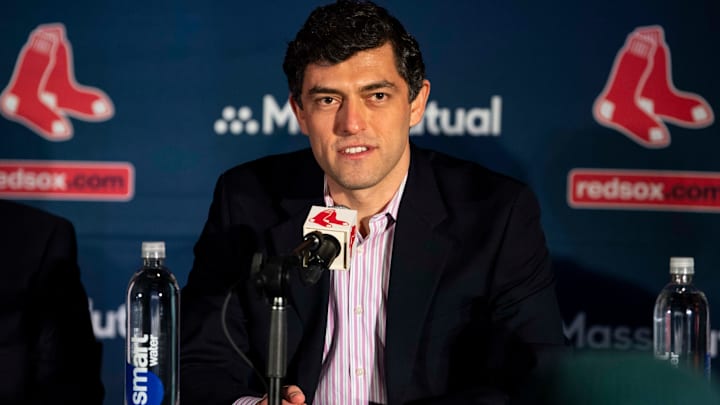The Boston Red Sox made the surprising decision to fire Chief Baseball Officer Chaim Bloom before he had the chance to wrap up his fourth season in Boston.
It's fair to have the viewpoint that Bloom got the short end of the stick here. He's done a terrific job rebuilding Boston's farm system, took them to the ALCS just two seasons ago, and he was able to keep Rafael Devers around for the long haul.
Bloom has done a lot of good, but the Red Sox are going to miss the postseason for the third time in his four seasons with the club and for a team in this market that's simply not good enough. There's more to this firing than just their subpar record, however. Bloom has made some critical mistakes that wound up leading to his firing.
1) The Red Sox are still suffering from the atrocious Mookie Betts trade
Yes, it's been four years, but the Red Sox are still suffering from what's wound up to be a disastrous Mookie Betts trade. It's not all Bloom's fault that Boston wound up trading him, but Bloom absolutely had to get a better return than they got.
Alex Verdugo is a solid player. He was really good in the short season and has been a tick above average as a hitter in the three years since. He has a terrific arm, doesn't strike out, and is fun to watch. The problem is, he's the best part of the Betts return by far, can be gone in a year, and has a .771 OPS with Boston. That's not good enough.
The prized prospect from the trade, Jeter Downs, wound up playing 14 games for Boston before being DFA'd and latching on with Washington. Connor Wong has been a fine backup catcher and has had a really nice 2023 season, but you don't trade an MVP for a backup catcher.
The Red Sox trading Mookie Betts isn't on Bloom. Ownership played a huge role, and you can't fault him for that. What Bloom is to blame for is the return. That return had to be what led Boston back to glory and it simply hasn't come close to reaching expectations. They traded an MVP for a decent outfielder and a backup catcher. It felt like Bloom was doomed from the start getting that kind of return for Mookie.
